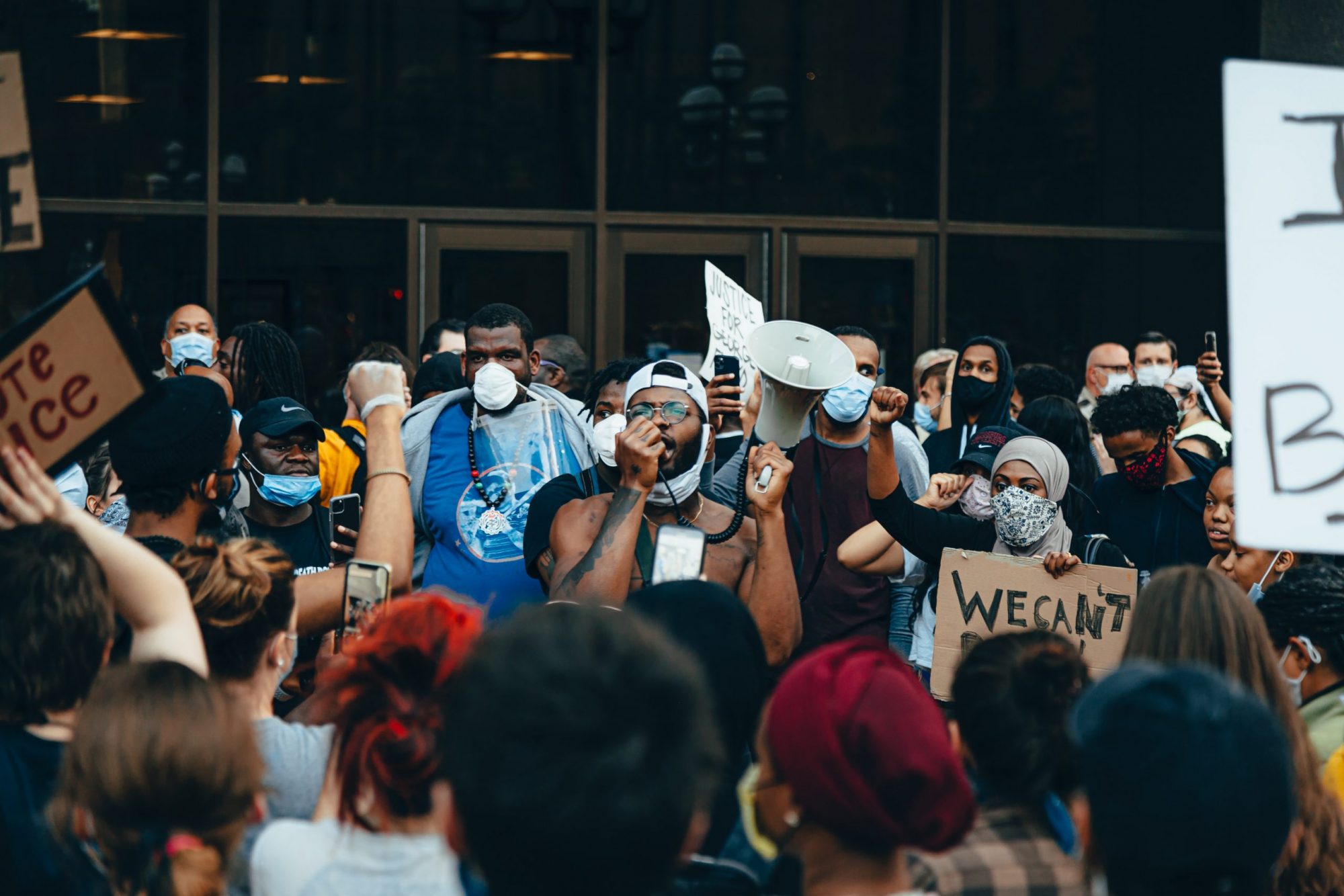This article by Shorenstein Center Executive Director Setti Warren first appeared in the UK’s The Telegraph on May 31, 2020. Read the original at https://www.telegraph.co.uk/news/2020/05/31/george-floyd-protests-highlight-racial-disparities-still-exist/ Photo by Josh Hild via Unsplash.
In February of 1968 the Kerner Commission report was released after seven months of investigation at the request of President Lyndon Johnson to understand the causes of the 1967 race riots in the United States and provide recommendations for the future.
The report stated, “Our nation is moving toward two societies, one black, one white-separate and unequal…What white Americans have never fully understood but what the Negro can never forget – is that white society is deeply implicated in the ghetto.
“White institutions created it, white institutions maintain it, and white society condones it.”
The report was also critical of the media, writing “The press has too long basked in a white world looking out of it, if at all, with white men’s eyes and white perspective.”
The commission noted that mistreatment of African Americans by police ignited many of the protests. They recommended a massive infusion of resources into urban black communities to upgrade the quality of life and recommended laws to desegregate America.
The recent killing of George Floyd shines a light on the fact that more than 50 years later, our cities find themselves in much the same circumstances.
Over the last 50 years there have been protests in major American cities due to the police mistreatment, and far too often, killing, of black Americans. Each of these protests unearthed the continued inequalities in communities.
People weren’t just protesting the action of police, but the historic, deliberate laws and policies that have been put in place since the founding of our country to segregate and subjugate African Americans.
The current global pandemic has drawn attention to and amplified the existing racial disparities in education, health, and economic security. In the past 2 months, the unemployment rate has skyrocketed for African Americans at a higher rate than whites.
Black Americans are more likely to be front line workers and more likely to contract and die from COVID-19 than white Americans.
The current situation has exposed a stark disconnect between the way public policymakers, politicians, elite institutions and the media report on the economy and the way most American communities experience it.
Before the pandemic, emphasis on stock market numbers, GDP, and unemployment outcomes belied communities’ susceptibility to economic shock. Now, these measures continue to fail at representing the grave economic vulnerability that the majority of Americans face, particularly black and brown Americans.
The recent deaths of Eric Garner, Breonna Taylor, a black woman killed in her apartment, and the incident in Central Park should finally kill the myth that because we elected a Black President, we’ve eradicated racism.
The deep racial disparities that continue to exist in our country in wealth, employment, health, education, and incarceration rates show that the playing field isn’t level, and never has been in this country. That’s why people are protesting. The underlying conditions described in the Kerner Commission report continue to plague our nation’s cities today. These incidents conjure the fear and pain that many blacks have experienced in society since the inception of the country. With no meaningful change in economic circumstances, the killing of Trayvon Martin, of Ahmaud Arbery, combine to create the conditions that fuel the protests we’re seeing today.
My parents grew up Black and poor in the 40s and 50s. My father joined the Airforce and went to Korea. He came back and was the first in his family to go to college.
At North Carolina A&T in the 1960s, he marched for civil rights and went to jail for three times. In my father’s generation there was hope coming out of the civil rights movement that real change could occur. Fifty plus years later, that hope has not been realized.
Just as Kerner recommended more than fifty years ago, in order to change the trajectory of our cities, we must hold people who commit racist acts accountable.
We must make changes to the laws and policies that intentionally promote segregation and subjugation. We must make massive investments to begin to reverse the hundreds of years of institutional barriers that black Americans have faced. We must go beyond speeches, posts and hashtags and dig in and do the hard work of real structural change.
Setti Warren is Former Mayor of Newton, Massachusetts and the state’s first popularly elected black mayor in Massachusetts.


